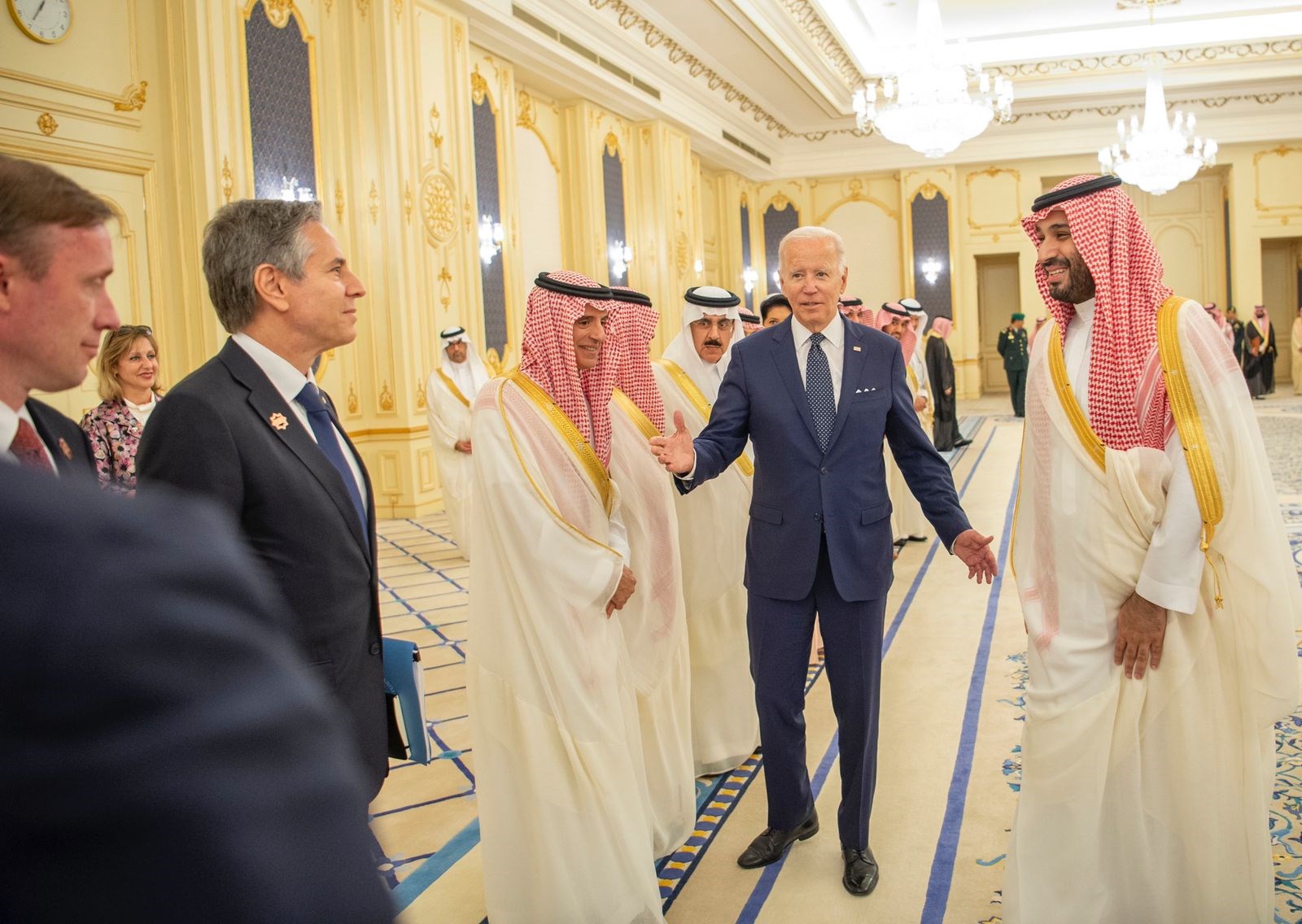Biden does not regret calling Saudi Arabia 'pariah' statement
US President Joe Biden says that he does not regret making the statement in which he called Saudi Arabia, a country he is trying to appease, "a pariah".
-

US President Joe Biden at the head of his delegation with Saudi Crown Prince Mohammed bin Salman in Jeddah, Saudi Arabia, June 15, 2022
US President Joe Biden said Friday that he has no regrets when it comes to calling Saudi Arabia "a pariah state" for Riyadh's role in the assassination of Saudi journalist Jamal Khashoggi in 2018.
"I don't regret anything that I said. What happened to Khashoggi was outrageous," Biden told a press briefing, adding, "if anything occurs like that again, they’ll get that response and much more."
The US leader also said that he raised the issue of Khashoggi's murder with Saudi Crown Prince Mohammed bin Salman during their meeting in Jeddah.
"With respect to the murder of Khashoggi, I raised it at the top of the meeting, making it clear what I thought of it at the time and what I think of it now," Biden revealed.
Biden then disclosed that MBS told him he did not feel personally responsible for Khashoggi's murder and claimed to have taken action against those who were.
Biden Says Reached Deal With Saudi Arabia on Investing in Secure 5G, 6G Networks
"Saudi Arabia will invest in new US-led technology to develop and secure reliable 5G and 6G networks, both here, and in the future, in developing countries," Biden said during the press conference.
According to Biden, the new technology will outperform rival platforms like those from China.
In order to open Tiran Island in the Red Sea "for greater tourism and development," the United States and Saudi Arabia came to an agreement to remove international security forces from the island, the US president revealed
Biden said that "International peacekeepers, including US troops, will leave Tiran Island in the Red Sea, where they've been for over 40 years since the Camp David Accords."
Regarding energy security, the US president said: "We had a good discussion on ensuring global energy security and adequate oil supplies to support global economic growth."
"That will begin shortly and I'm doing all I can to increase the supply for the United States of America which I expect to happen," he added, noting that "The Saudi share that urgency, and based on our discussions today, I expect we'll see further steps in the coming weeks."
Regarding the impact of his visit to the Middle East on gas prices in the US, Biden claimed US consumers will not see those for "another couple of weeks."
No handshake for MBS: Biden bumps fists with Saudi Crown Prince
Reports on Thursday said that Biden was set to avoid shaking hands during his West Asia tour, White House officials said, noting that the decision taken by the US leader to limit handshakes was over medical advice he received from his doctor amid a rise in Covid-19 cases.
Biden's PR team must have spent some time brainstorming the act, as they know that the most damaging that could come out of the visit would be that of Biden putting his hand in MBS', especially after the US intelligence community found him to be the one who pulled the strings that murdered Khashoggi.
US President Joe Biden bumped fists on Friday with Saudi Crown Prince Mohammed bin Salman upon landing in Jeddah, Saudi Arabia, on the second leg of his visit to West Asia.
Biden first landed at the Ben Gurion Airport, Al-Lyddm occupied Palestine, on Wednesday, where he was received by high-ranking Israeli officials on his first official visit to occupied Palestine as President before holding talks with Israeli occupation Prime Minister Yair Lapid and other senior officials.
His visit to Saudi Arabia is supposed to see the US leader try and mend ties with Saudi Arabia to persuade Riyadh and other Gulf allies to pump out more oil in the markets as the Biden administration faces mounting criticism over the soaring oil prices.
Many are saying that the statements coming from the United States are just paving the way for Biden to avoid taking a photo shaking hands with Saudi Crown Prince Mohammed bin Salman upon landing in Saudi Arabia in a bid to try and salvage whatever is left of his narrative of making the Kingdom "the pariah that they are."

 4 Min Read
4 Min Read








